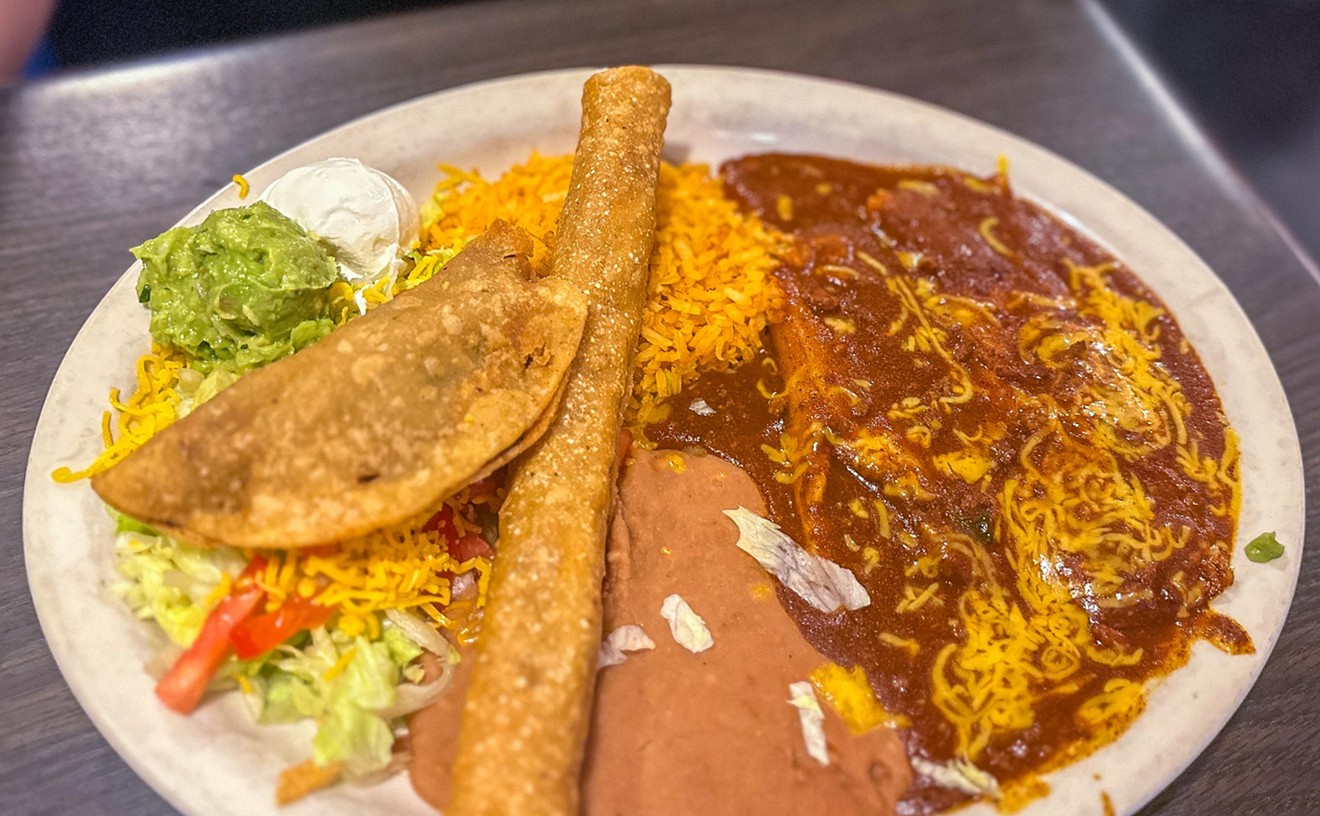The attempted iguana meat caper that unfolded yesterday at the Laredo border posed a pressing question for food enthusiasts: Just what did those confiscated iguana tamales taste like?
U.S. Customs and Border Patrol seized 58 pounds of alleged iguana meat mixed with masa, citing restrictions on wild animal importation. The tamales were valued at $1,600, although the Latin delicacy can fetch up to $50 a pound in certain U.S. markets.
It's not illegal to consume iguana. The Christian Science Monitor reported back in 2004 that iguana farming's on the upswing, with Central American ranchers competing to meet the demands of a growing Latino population in the United States.
But many American eaters have never sampled iguana, a reptile whose meat is credited with curing colds and restoring sexual desire. If they did, iguana fans say, they'd discover a very familiar flavor.
"Did you know that iguana really does taste just like chicken?" Jonathan Kauffman, now the critic for our sister paper SF Weekly, wrote in a 2006 restaurant review. "No joke: I kept trying to come up with descriptive words for the chunks of pale-pink meat at the bottom of my bowl. And though the long-stewed garrobo was slightly richer than thigh meat and slightly tougher, too, I couldn't identify a strong scent or taste."
European explorers who were served iguanas by their coerced New World hosts tended to form similar conclusions: A 16th-century historian who chronicled Christopher Columbus' journey to Haiti described iguana as "extremely tasty." Peter Martyr likened iguana to the pheasants and peacocks then prized by Europe's nobility.
More than a century later, Dutch geographer Cornelius de Pauw was equally impressed by iguana meat, but warned the "meat is harmful for those suffering from the French disease." (Which is a tactful way of referring to syphilis -- provided the listener isn't French.)
Early explorers did fret about whether iguanas were permissible to eat on Fridays and other Lenten days, when the Catholic Church forbade the consumption of meat. Since iguanas perched in trees and paddled in rivers, perplexed explorers couldn't figure out whether to classify them as fish or fowl.
Modern eaters, most of whom have very different dietary concerns, tout iguana's health benefits. The meat's low in fat, and -- as a home cook wrote in a post on Chowhound -- "Not to be clichéd, but it tastes like chicken."










